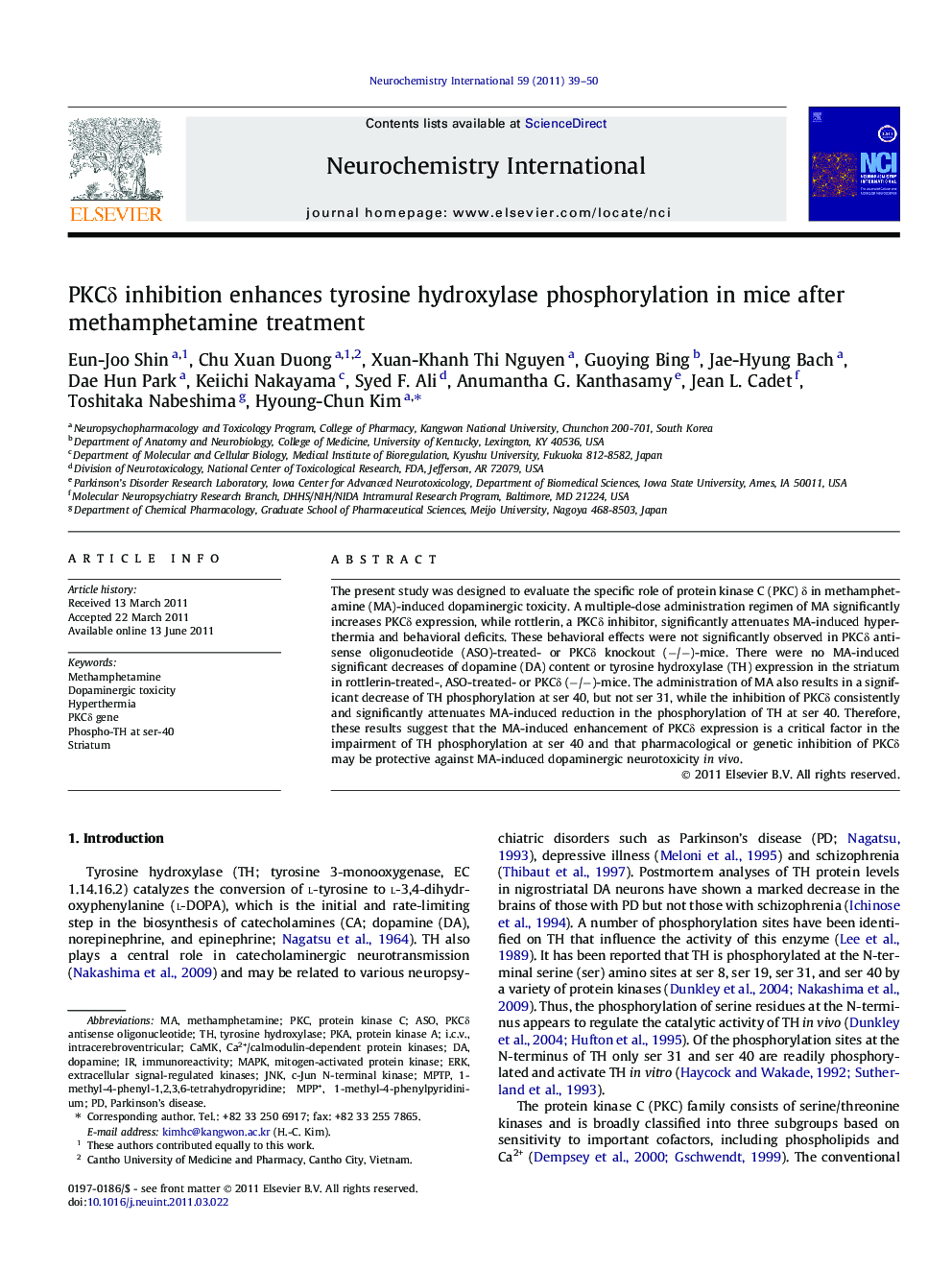| Article ID | Journal | Published Year | Pages | File Type |
|---|---|---|---|---|
| 2201323 | Neurochemistry International | 2011 | 12 Pages |
The present study was designed to evaluate the specific role of protein kinase C (PKC) δ in methamphetamine (MA)-induced dopaminergic toxicity. A multiple-dose administration regimen of MA significantly increases PKCδ expression, while rottlerin, a PKCδ inhibitor, significantly attenuates MA-induced hyperthermia and behavioral deficits. These behavioral effects were not significantly observed in PKCδ antisense oligonucleotide (ASO)-treated- or PKCδ knockout (−/−)-mice. There were no MA-induced significant decreases of dopamine (DA) content or tyrosine hydroxylase (TH) expression in the striatum in rottlerin-treated-, ASO-treated- or PKCδ (−/−)-mice. The administration of MA also results in a significant decrease of TH phosphorylation at ser 40, but not ser 31, while the inhibition of PKCδ consistently and significantly attenuates MA-induced reduction in the phosphorylation of TH at ser 40. Therefore, these results suggest that the MA-induced enhancement of PKCδ expression is a critical factor in the impairment of TH phosphorylation at ser 40 and that pharmacological or genetic inhibition of PKCδ may be protective against MA-induced dopaminergic neurotoxicity in vivo.
► High doses of methamphetamine (MA) resulted in significant increase in PKCδ expression. ► MA significantly inhibited phosphorylation of TH at ser 40 (phospho-TH ser 40). ► Inhibition of PKCδ significantly attenuated MA-induced reduction in phospho-TH ser 40. ► Phospho-TH ser 40 by PKCδ inhibition may be a protective target against MA toxicity.
